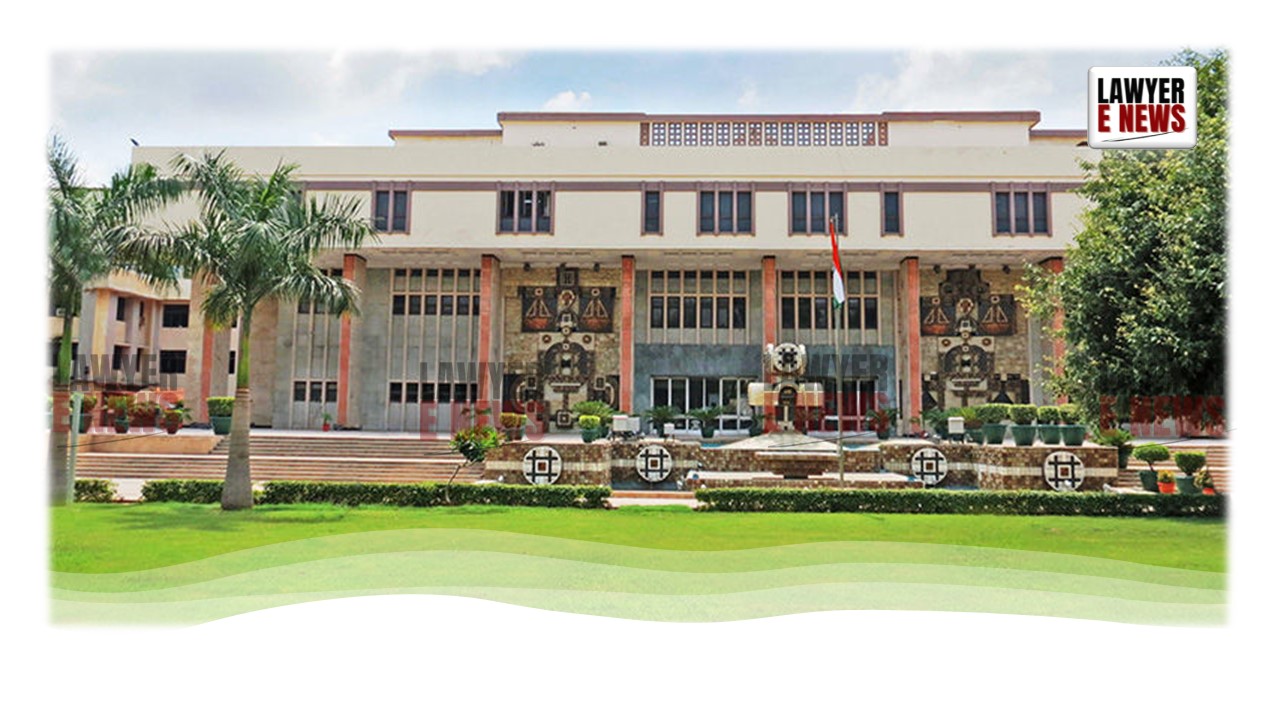-
by Admin
15 February 2026 5:35 AM



Delhi High Court comprising Justice Vibhu Bakhru and Justice Swarana Kanta Sharma issued a significant ruling in the case of The Institute of Chartered Accountants of India v. CA Shri Subhajit Sahoo & Anr. [Chat A. Reference Case No. 2 of 2019]. The court held Chartered Accountant (CA) Shri Subhajit Sahoo guilty of professional misconduct under Clause (7) of Part I of the Second Schedule to the Chartered Accountants Act, 1949, for gross negligence. However, the court modified the recommendation of the Institute of Chartered Accountants of India (ICAI) to remove his name from the Register of Members for one year, reducing the punishment to a severe reprimand, citing his unblemished career spanning three decades and the excessive 19-year delay in the proceedings.
The judgment also clarified the standard of proof in disciplinary proceedings under the Chartered Accountants Act, observing that while criminal standards of "beyond reasonable doubt" are not required, the burden of proof in professional misconduct cases must be higher than the civil standard of "preponderance of probabilities." This decision reinforces jurisprudence on maintaining the balance between accountability and fairness in disciplinary inquiries.
The case arose from a complaint filed on November 29, 2005, by the Additional Development Commissioner (Handicrafts), Ministry of Textiles, alleging gross professional misconduct by CA Subhajit Sahoo. The allegations pertained to two Utilization Certificates (UCs) issued by Sahoo in connection with a loan of ₹11,18,000 sanctioned to M/s Maokot Handloom & Handicrafts Cooperative Society Ltd., Churachandpur, Manipur. The loan’s first installment of ₹6,84,000 was allegedly spent, but an inspection revealed significant discrepancies between the certified expenditures and actual procurement, particularly machinery worth only ₹41,000 being present, as opposed to ₹2,50,000 certified in one of the UCs.
Further, the certificates issued by Sahoo failed to disclose reliance on other sources, such as a certificate from another CA firm, M/s MKM Associates, which was later determined to be forged. The complainant alleged that the second UC, issued by Sahoo on January 28, 2004, appeared backdated and reflected inconsistencies without adequate verification.
The ICAI Disciplinary Committee found Sahoo guilty of professional misconduct under Clause (7) of Part I of the Second Schedule for gross negligence in issuing the UCs. It noted that:
Sahoo failed to independently verify the financial records and relied on a certificate issued by another CA firm, which was later determined to be forged.
He did not physically inspect the machinery or substantiate his claims regarding the return of machinery worth ₹2,50,000 and the subsequent purchase of machinery worth ₹41,000.
He failed to disclose his reliance on third-party documentation in the UCs, which lacked transparency and due diligence.
Based on these findings, the ICAI Council recommended removing Sahoo's name from the Register of Members for one year. However, the Delhi High Court had earlier quashed this recommendation in 2017 due to procedural irregularities and directed a fresh reconsideration by the ICAI, which eventually reaffirmed its initial findings.
The High Court agreed with ICAI's findings that Sahoo exhibited gross negligence by failing to exercise due diligence in issuing the UCs. It emphasized that a chartered accountant’s duty involves ensuring accuracy and transparency in financial certifications, which Sahoo failed to uphold.
For the first UC, Sahoo did not disclose his reliance on the certificate of M/s MKM Associates, which turned out to be forged, nor did he properly verify the supporting bank statements and documents.
For the second UC, Sahoo failed to provide documentary evidence supporting his claim that machinery worth ₹2,50,000 was returned and replaced by machinery worth ₹41,000. The court noted that he acted on the mere assertion of the Cooperative Society without independent verification, which amounted to gross negligence.
The court clarified that the standard of proof in disciplinary cases involving professional misconduct lies between the civil standard of "preponderance of probabilities" and the criminal standard of "beyond reasonable doubt." Drawing from domestic and international jurisprudence, the court noted that while professional misconduct requires a higher threshold than ordinary civil cases, it does not necessitate proof beyond reasonable doubt.
Citing Halsbury’s Laws of England, Institute of Chartered Accountants of India v. S.K. Jain (2000), and other precedents, the court underscored that serious allegations like professional misconduct demand a higher degree of certainty, but not the rigor required for criminal prosecutions.
While upholding the misconduct finding, the court highlighted two mitigating factors:
Three-Decade Career Without Complaints: Sahoo had an otherwise unblemished career spanning nearly 30 years, with no other instances of professional misconduct.
19-Year Delay in Proceedings: The court expressed concern over the inordinate delay in the ICAI's disciplinary process, which caused undue hardship to Sahoo.
Punishment Modified
Considering these mitigating factors, the court replaced the recommended penalty of removal from ICAI’s Register of Members for one year with a severe reprimand, which is a lesser but still significant penalty under Section 21(6)(b) of the Chartered Accountants Act.
The Delhi High Court's judgment reaffirms the ICAI’s role as a regulator in maintaining the integrity of the chartered accountancy profession. By addressing procedural delays and clarifying the evidentiary standard, the court strikes a balance between safeguarding public trust and ensuring fairness in disciplinary actions.
Date of Decision: November 20, 2024
